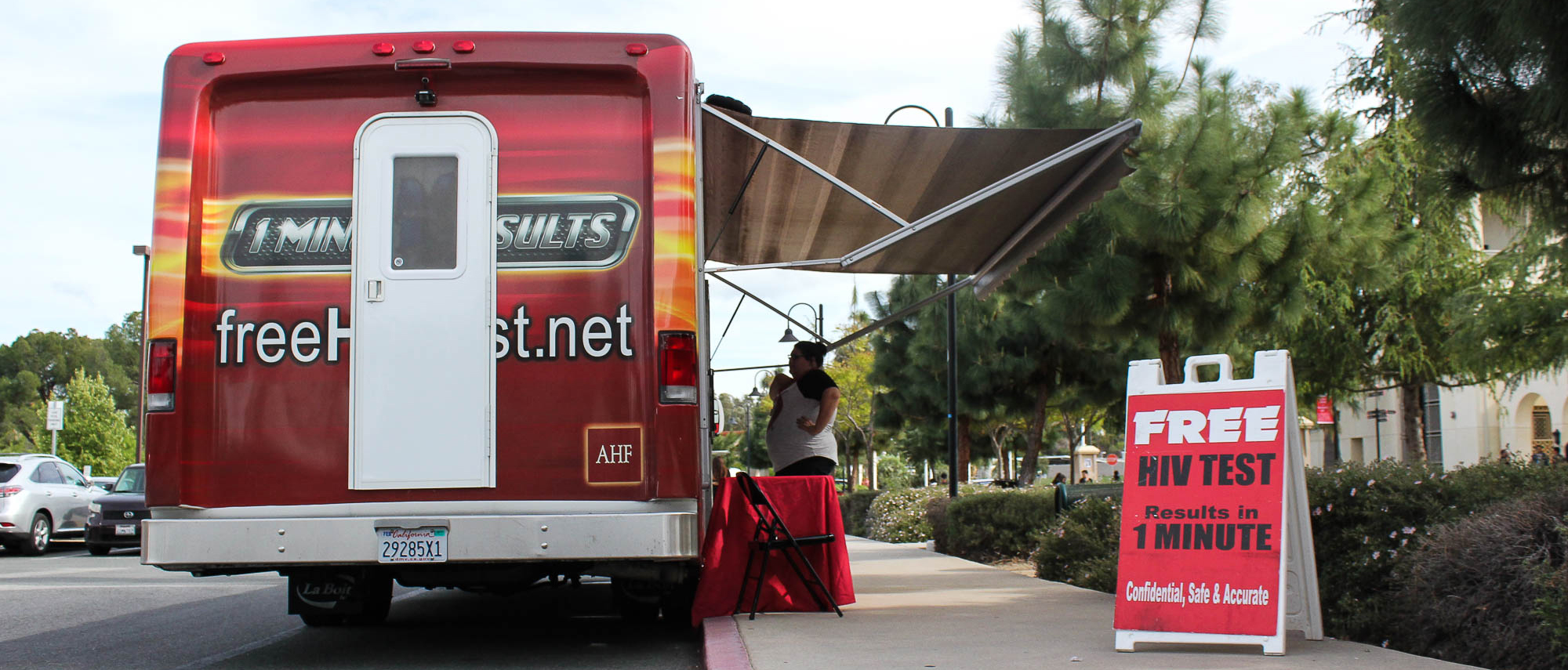Free HIV test for students were provided by the AIDS Healthcare Foundation (AHF) in front of the Student Service Building from March 21 to 24.
Director of the Student Health Center Beth Benne said she organized the testing in part to increase awareness and offer useful information.
“I think it’s a wonderful opportunity for a free STI test, this test is for HIV and AIDS which are pretty important life changing diagnoses because they are not curable,” Benne said.
Results are tested with a drop of blood from a finger prick and can also test for antibodies.
“We know that young people are having unprotected sex because they come in for STI testing all the time, and they come in for pregnancy testing,” Benne said. “I think it is a matter of providing any opportunity I can for any free testing.”
Diseases like HIV and AIDS are life threatening and people may not be aware of the seriousness of these diseases and how they can affect not only their life, but their partner’s too.
There are events such as World AIDS Day, which is on Dec. 1 each year, where people can stress the importance of testing oneself in order to prevent these diseases.
“Early intervention is the biggest thing, also the safety of your partners, early intervention diagnosis leads to a more positive prognosis,” Benne said.
Testing counselors were on site to answer any students questions and concerns.
Miguel Ortiz was one of the testing counselors that was there to assist students.
“The prevalence is high for our youth, youth meaning from 17 years old until late 20’s,” Ortiz said. “I think education is key. A lot of people don’t have access to care and we can provide it in a minute.”
The HIV testing counselors made sure it was easy for students to do but also made sure they felt comfortable and were well taken care of.
AHF HIV testing is free. The treatment and testing are free, according to Autumn Sinkford, a volunteer for the HIV testing truck.
“That’s what we pride ourselves on,” Sinkford said. “We provide a free HIV test, free STD testing and if an individual comes back positive for either one, we send the person to our clinic and the individual gets treated.”
There are options for home HIV test kits, which are mostly cotton swab tests, but they are never as accurate as doing a blood test, According to Sinkford.
Sinkford explained what the process is for an individual who wants to get checked. A confidential form is filled out with their name and birthdate, the same as the person would do at their clinic. Then the individual goes inside the truck and the tester explains the test to the person that the window period for their test is two weeks to three months and that it’s an antibody count test.
“If a person is infected on the day they have sexual intercourse the body would not have been able to produce enough antibodies to detect if the person is HIV positive or not,” Sinkford said. “So, the body would need at least two weeks to develop antibodies depending on the individual’s body.”
Therefore, AHF’s test detects as early as two weeks to three months. On average people don’t develop until the third month, according to Sinkford.
Sinkford said they cannot test for anybody under 13 years old.
“It’s better to know than not know,” Sinkford said. “If you are positive not only are you spreading it to people that you love but you have to get checked for yourself to maintain your health and get the treatment necessary.”
For those who couldn’t make it to the HIV testing trucks, students can make an appointment at the Student Health Center and get test for a nominal fee of $14 and receive results within 24 hours.




